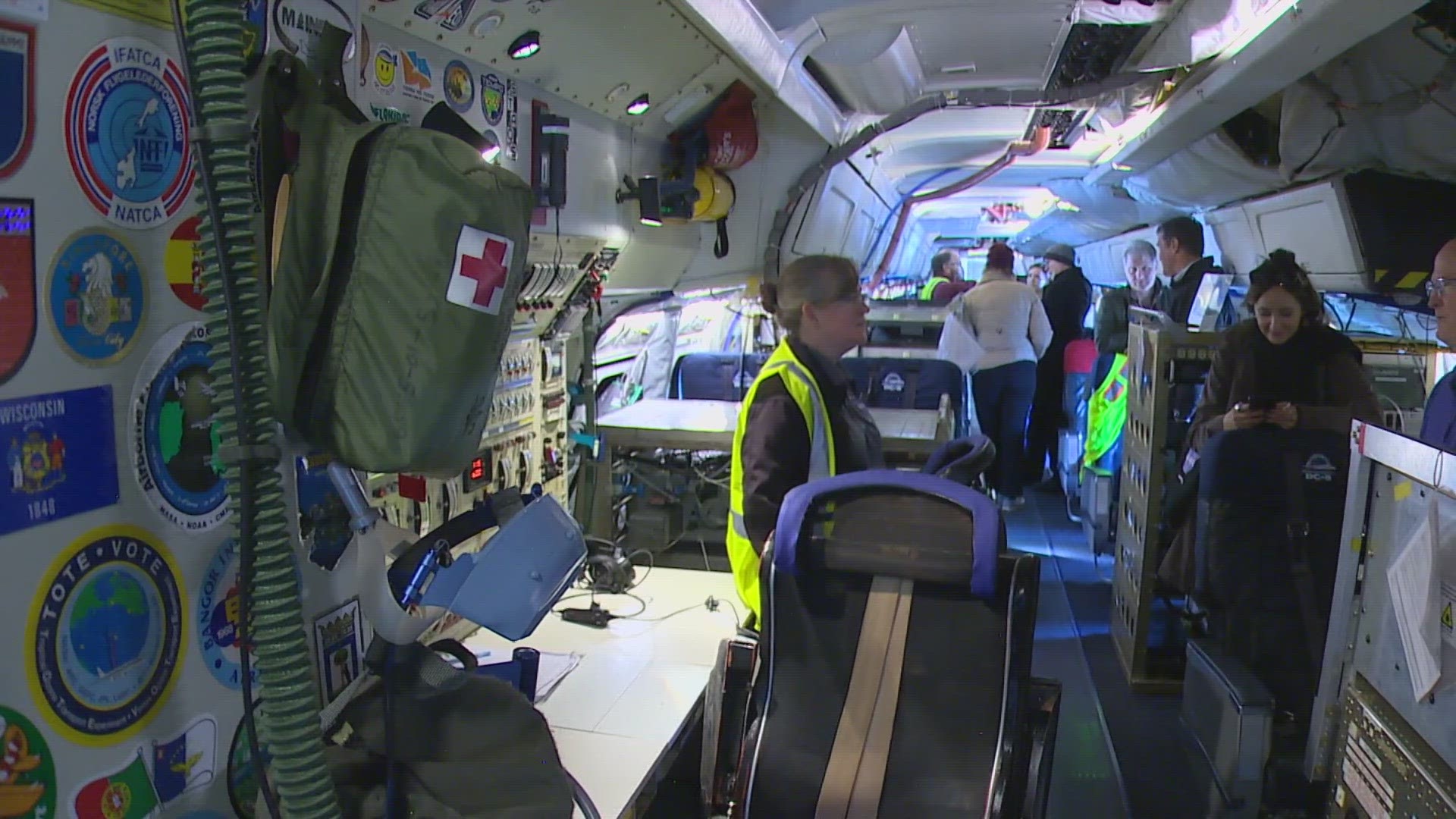EVERETT, Wash. — Scientists with Boeing and NASA are working together to learn more about the effects of aviation contrails on the environment.
Contrails, short for condensation trails, are the lines of clouds from high-flying aircraft and can trap heat in the atmosphere.
Boeing's ecoDemonstrator took the lead followed by NASA's DC-8 aircraft.
"Seventeen different instruments that we used to sample emissions from the lead aircraft," said Nicki Reid who is the Operations Engineer DC-8 mission manager for NASA's Airborne Science Program.
NASA and Boeing tested emissions or contrails with both 100% sustainable aviation fuel and conventional jet fuel.
"We're flying through the same air with one fuel and then we're turning around and coming back with a different fuel and are seeing a dramatic difference," said Richard Moore who is the principal investigator for the NASA-Boeing ecoDemonstrator Emissions Flight Test.
An easy maneuver in theory, NASA has been doing these tests on the ground for more than a decade, but doing it in the sky is another story. It took three weeks of testing during 5-to-6-hour flights.
"In general it was really driven on where it was forecast to be good that day for contrail formation so we went to Montana that day and sometimes down the coast," said Abby Sevier who is the deputy lead of the ecoDemonstrator Platform.
While carbon impacts on aviation and the environment are well studied, there's still a lot we don't know about the impact of contrails.
"We are getting a better understanding of how they contribute and what we can do to reduce those emissions and contributions to create a cleaner earth," said Reid.
There are good contrails, but this study specifically looks at reducing the bad ones.
"So by burning sustainable aviation fuel we can show that the particle emissions are reduced, the ice crystal number in contrails is reduced and that reduces the climate impact from contrails," said Christiane Voigt who is the Research Team lead for the German Aerospace Center, or DLR.
Voigt says this research gets them one step closer to fully sustainable planes, "It was a great success really."
According to NASA researchers, it will take months to analyze the data and compile a full report, though the results are promising.
With these positive results, it's important to note that Boeing is still testing how sustainable aviation impacts every plane part the fuel touches. So we're still far from having planes operate on 100% Sustainable Aviation Fuels.

